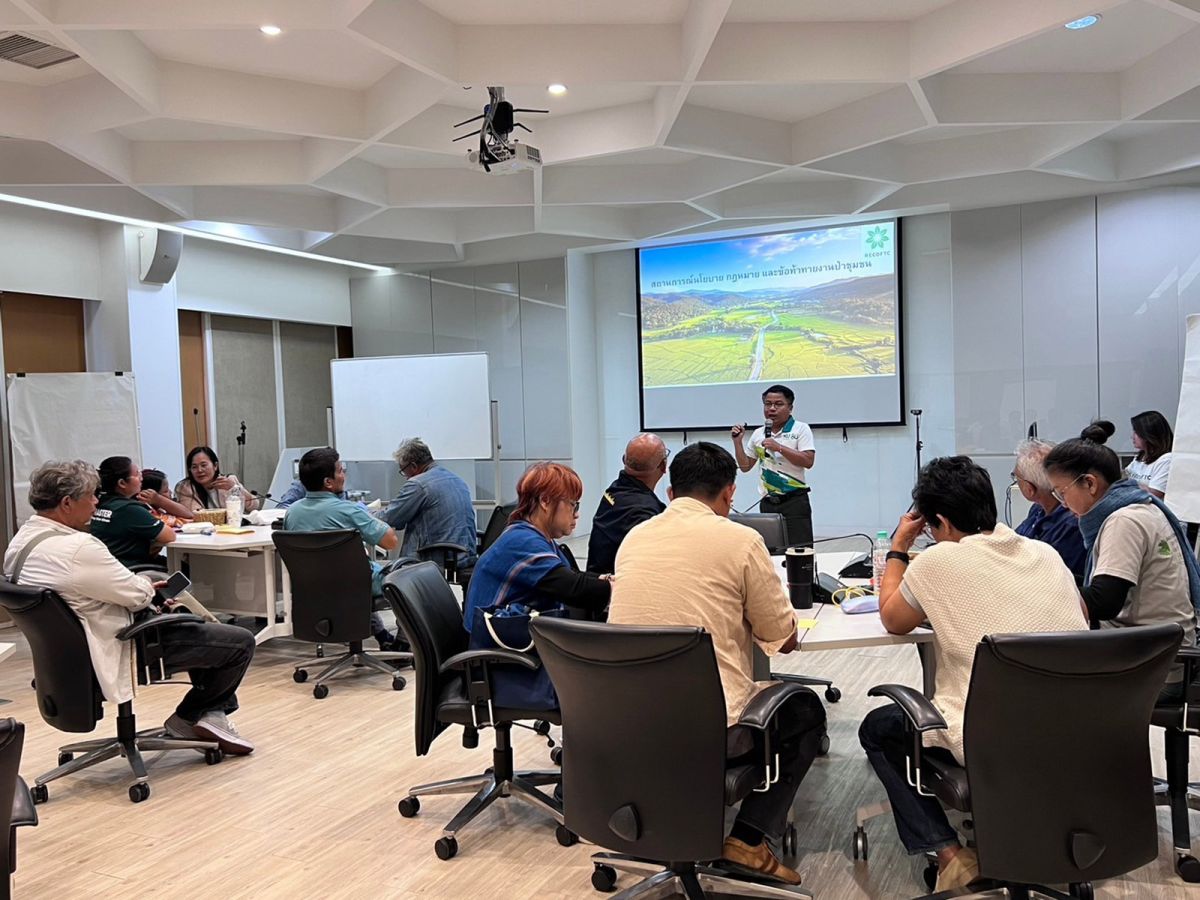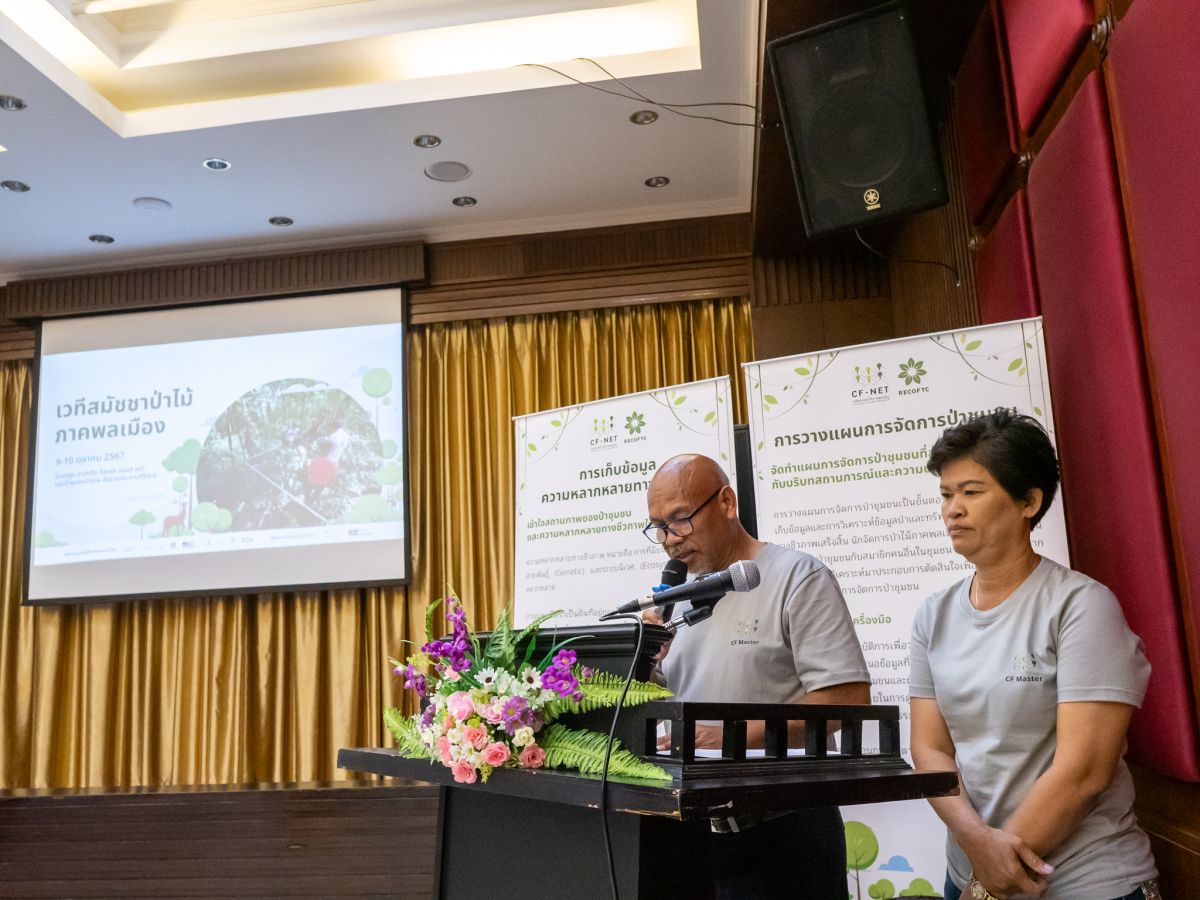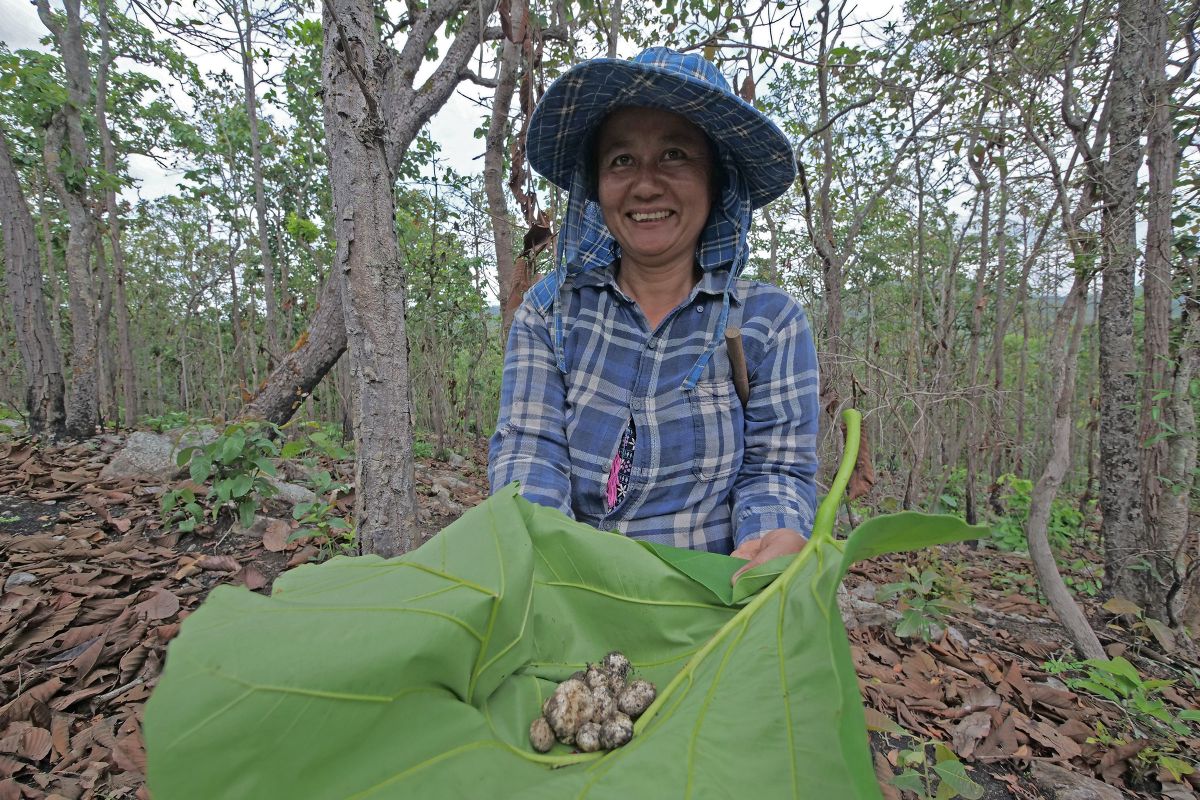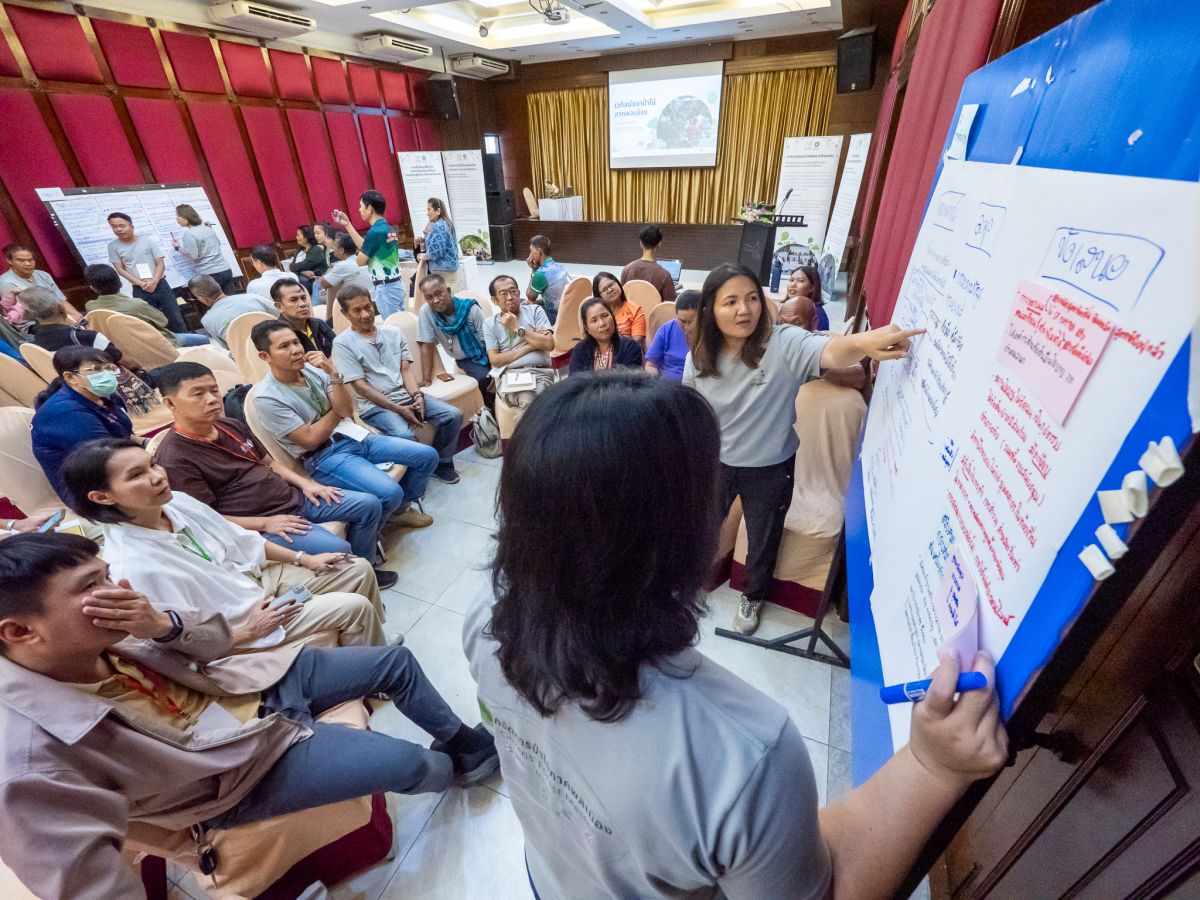Community forest governance in Thailand: The Community Forest Act and the Citizens’ Forest Network

Thailand’s Community Forest Act BE 2562 defines community forests as forest areas outside of protected areas that are overseen by the Royal Forest Department (RFD). With an aim to promote co-management between communities and the state, the act requires communities to create a community forest management plan and submit it to the RFD for registration of their community forests.
This formal registration grants communities the right to manage and use their community forests sustainably in accordance with conditions specified by the law such as foraging and ecotourism development. To date, 11,984 community forests have been formally registered, spanning approximately 1.07 million hectares (6.57 million rai).
The act has also allowed the establishment of formal mechanisms for enhancing community forest management. These mechanisms comprise three levels of committees. The Community Forest or CF Policy Committee provides guidance on policy and regulation development; the Provincial Community Forest or PCF Committee oversees approval or rejection of community forest management plans and monitoring and evaluating forest management; and the Community Forest or CF Management Committee leads and facilitates community forest management planning.
The CF Policy Committee and PCF Committee have representatives from communities and civil society organizations working alongside experts from the government sector, while the CF Management Committee is a community-level structure comprised of community leaders and members knowledgeable about forests.
Citizens’ Forest Network: A citizen-led mechanism toward community-first laws
It has now been five years since the enactment of the Community Forest Act. The Citizens’ Forest Network (CF-NET) was established by RECOFTC Thailand and partners during this significant legal transition period.
Although informal, CF-NET serves as an essential mechanism for communities and civil society organizations to monitor developments related to community forest laws. The network fosters knowledge exchange, enabling members to discuss ways to enhance community participation in forest management. It also allows them to look at how community forest laws align with local contexts.

For the past five years, CF-NET has been monitoring related laws, organizing provincial network meetings in 10 target provinces. It also organizes the Citizens’ Forest Assembly every year to share relevant knowledge and updates.
The CF-NET meetings help communities and civil society develop recommendations for enhancing forest governance and share them with government stakeholders, including representatives from formal committees under the Community Forest Act.
Insights and recommendations from CF-NET enhance the understanding of contexts and situations at local, provincial and policy levels. They can also serve as a basis for improving laws, ensuring alignment with on-the-ground realities, especially when it comes to subordinate laws and policies related to community forest management plans.
Recommendations for subordinate laws

One of the most prioritized subordinate law-related recommendations proposed to the government sector is that the definition of protected areas be maintained as defined in the Community Forest Act. A new ministerial regulation has expanded the definition of protected areas to cover more categories of forests.
For the communities, the definition noted in the Community Forest Act is integral to protecting the livelihoods of local people. Watcharin Chandet, regional CF-NET coordinator from Prachuap Khiri Khan province, says, “With the addition of new categories into the protected area umbrella, community-managed areas previously considered community forests now fall under the protected area category. This means they are no longer considered community forests.”
“Many communities who have long been taking care of these forest areas to protect and sustainably utilize resources may be excluded,” says Chandet. “The modified definition of protected areas will lead to restrictions on community rights and could create conflicts among affected communities.”
Recommendations for policies related to community forest management plans

As we evaluate what we have achieved in the past five years, we must take stock of the challenges ahead and look at ways to address them. This is essential for ensuring that the Community Forest Act truly promotes participatory, inclusive and sustainable forest management.
The act stipulates that communities must develop and submit their community forest management plans for community forest registration. However, creating a community forest management plan remains challenging. While the act provides a community forest management planning form, the format requires communities to only broadly note down what their community forest management activities are without linking the activities to their specific contexts and situations.
Most communities do not have the capacity to create actionable community forest management plans that suit their needs and those of their forests. “Community capacities in community forest management planning vary across Thailand,” says Warangkana Rattanarat, director of RECOFTC Thailand. “Some communities have only recently formed their own community forest management planning groups. They need knowledge and capacity enhancement, including forest resource data collection skills. This will help them understand the status of their forests and plan community forest management activities accordingly.”
Krisana Fuangdee, regional CF-NET coordinator from Tak province, hopes that capacity development for community forest management planning will be integrated into community forest policies. “We need capacity development plans for both community members and local government authorities,” she says. She notes that government authorities play a key role in supporting communities in CF management planning. “Our CF management plans should ensure we are ready to face present-day challenges. They should cover economic empowerment of our communities, conservation of our plants and animals, forest fire management and climate adaptation.”

Moving forward, we will explore innovations and financial mechanisms that connect communities and the private sector. CF-NET will continue to support local community members and civil society groups in strengthening forest governance, both in legal frameworks and on-the-ground implementation. We will also be looking at possible approaches to incorporate biodiversity conservation beyond protected areas.
###
Nitchanun Tantapong is communication officer at RECOFTC Thailand.
The Citizens’ Forest Network initiative receives financial support from the Thai Corporate Governance Fund (by HAND Social Enterprise).
The Citizens’ Forest Master capacity development initiative is part of the project, ‘Strengthening capacities for biodiversity management’, funded by the UK Government through the Darwin Initiative.
For more information, please visit Strengthening capacities for biodiversity management in Thailand’s community forests project page and explore the Thai Citizens' Forest database . (links in Thai)
RECOFTC’s work is made possible with the support of the Swiss Agency for Development and Cooperation and the Government of Sweden.

